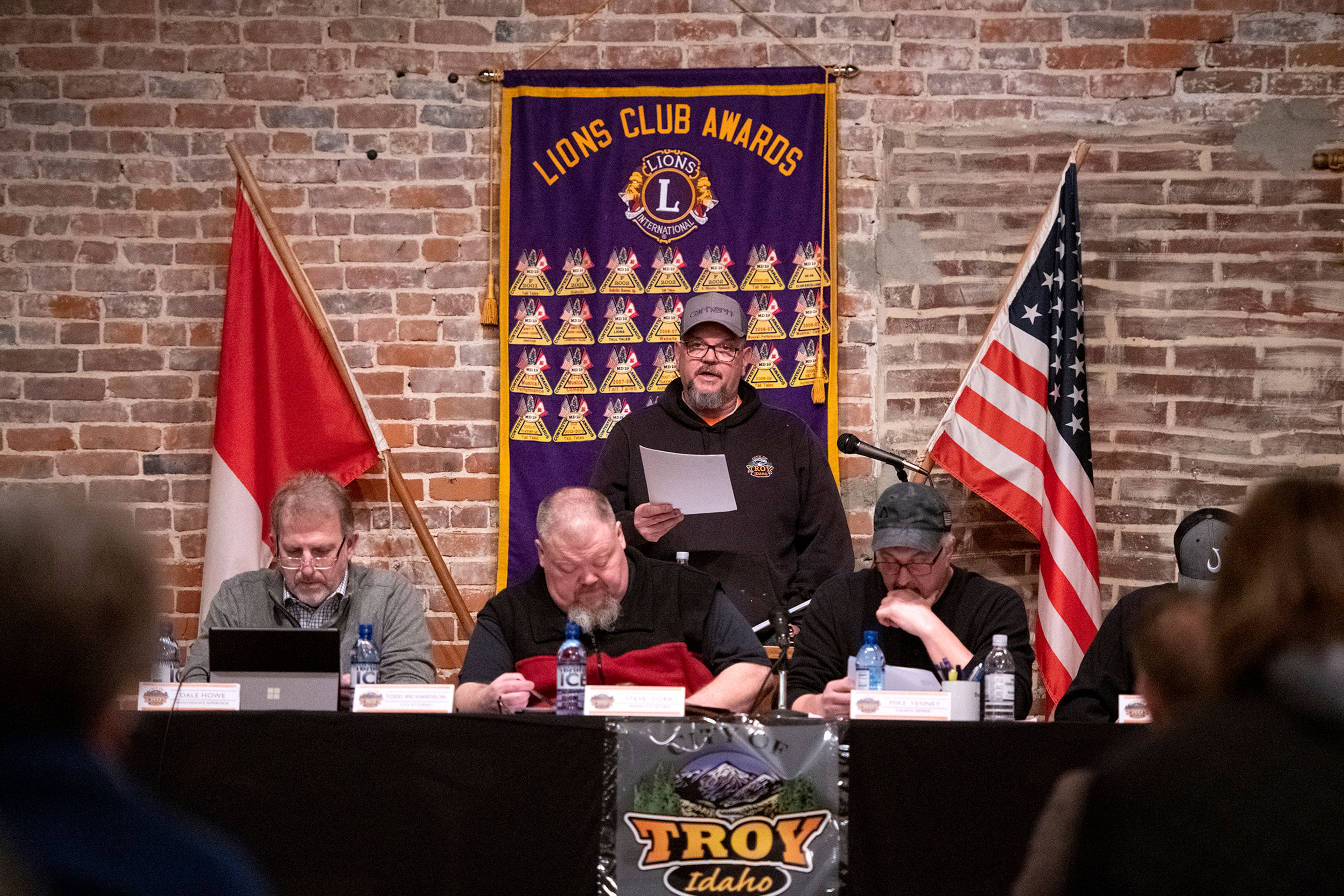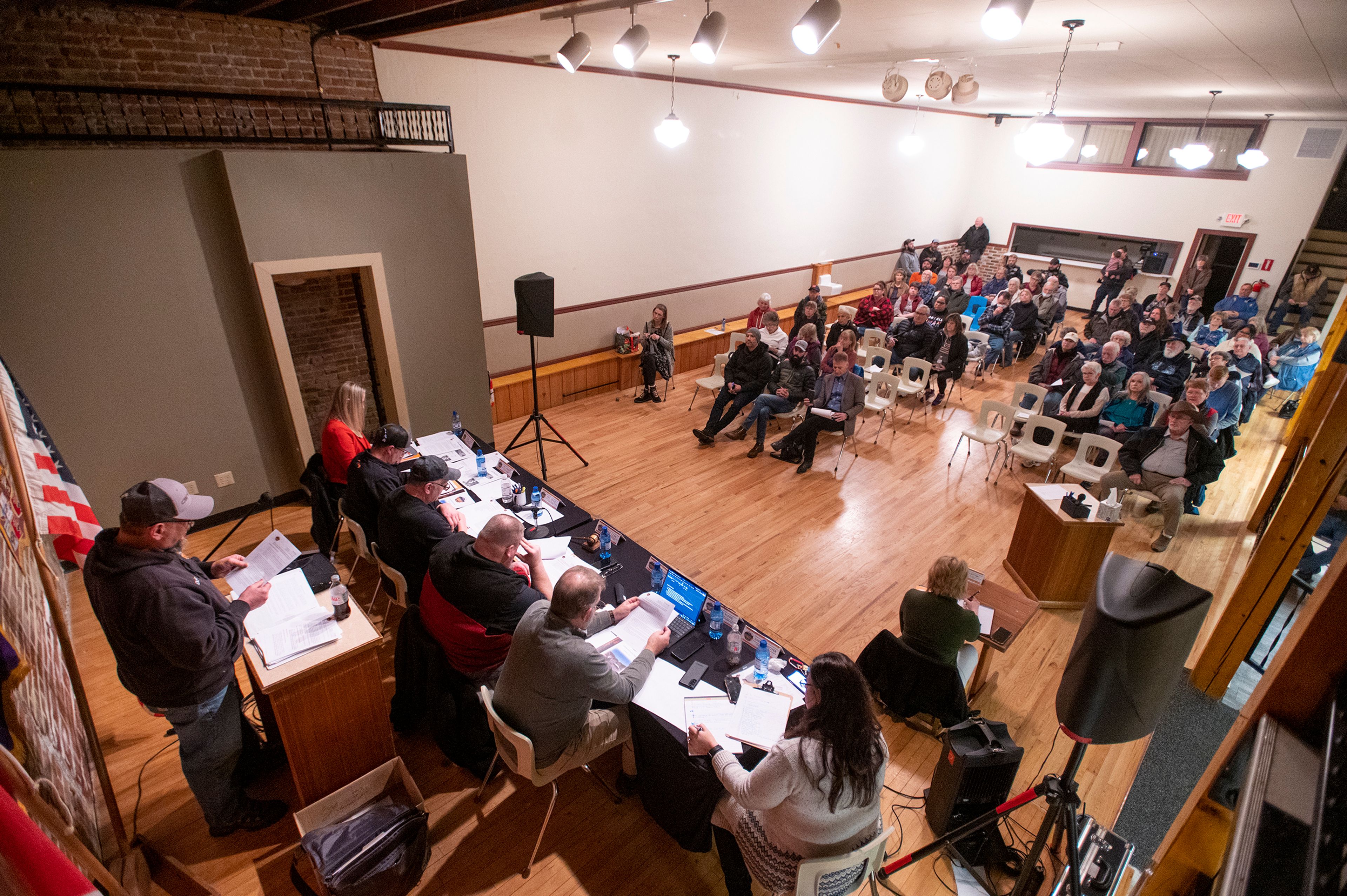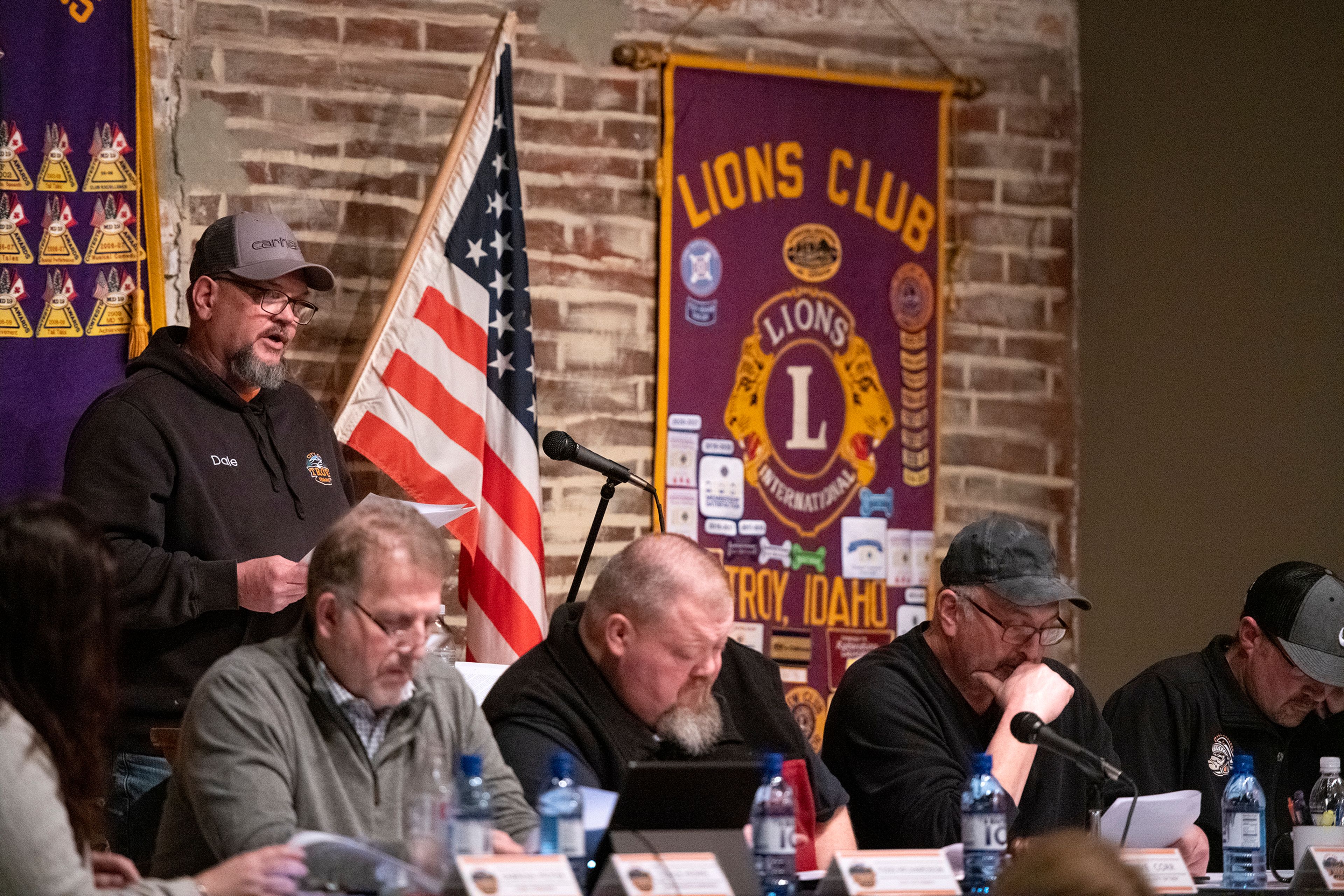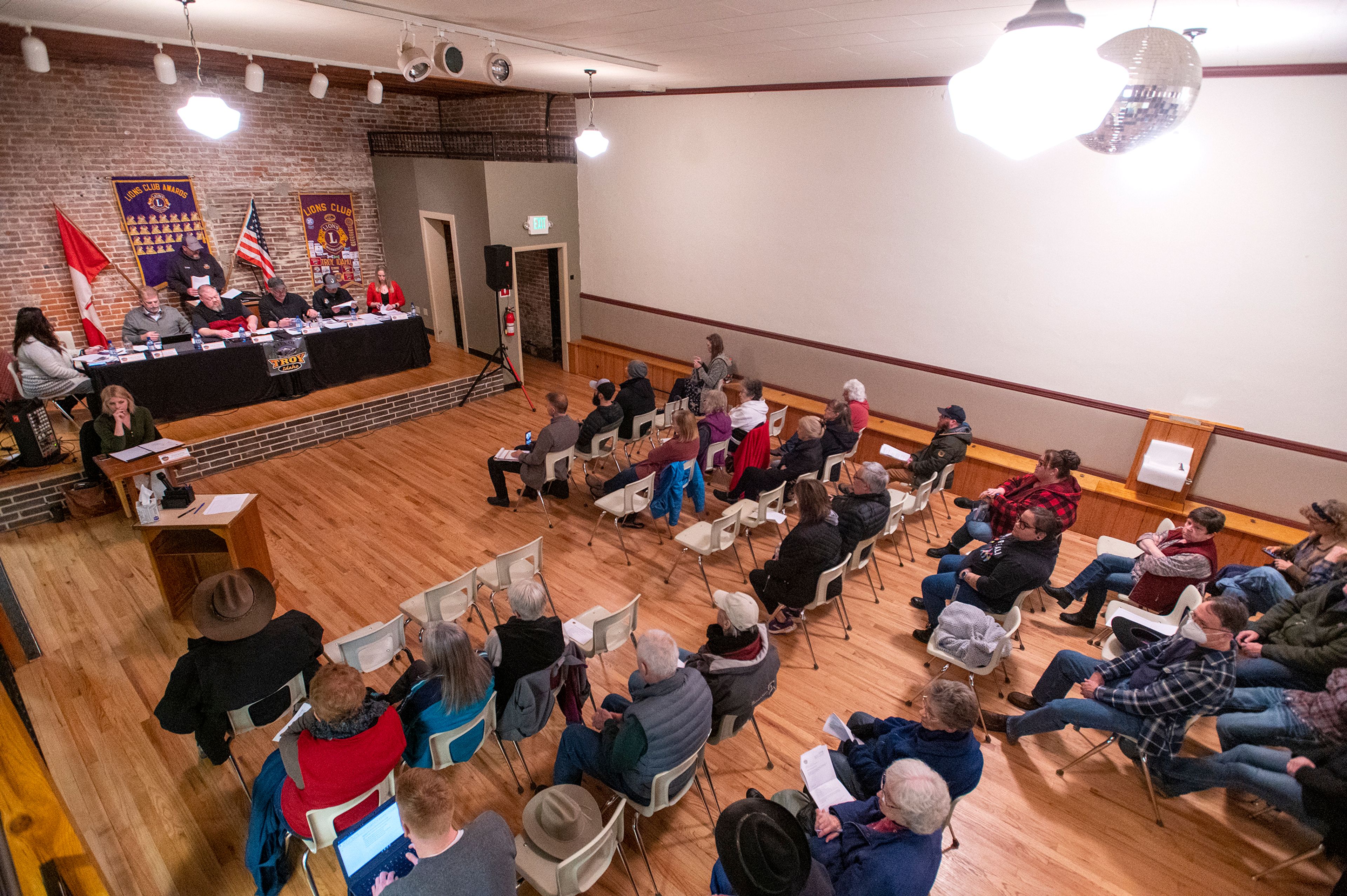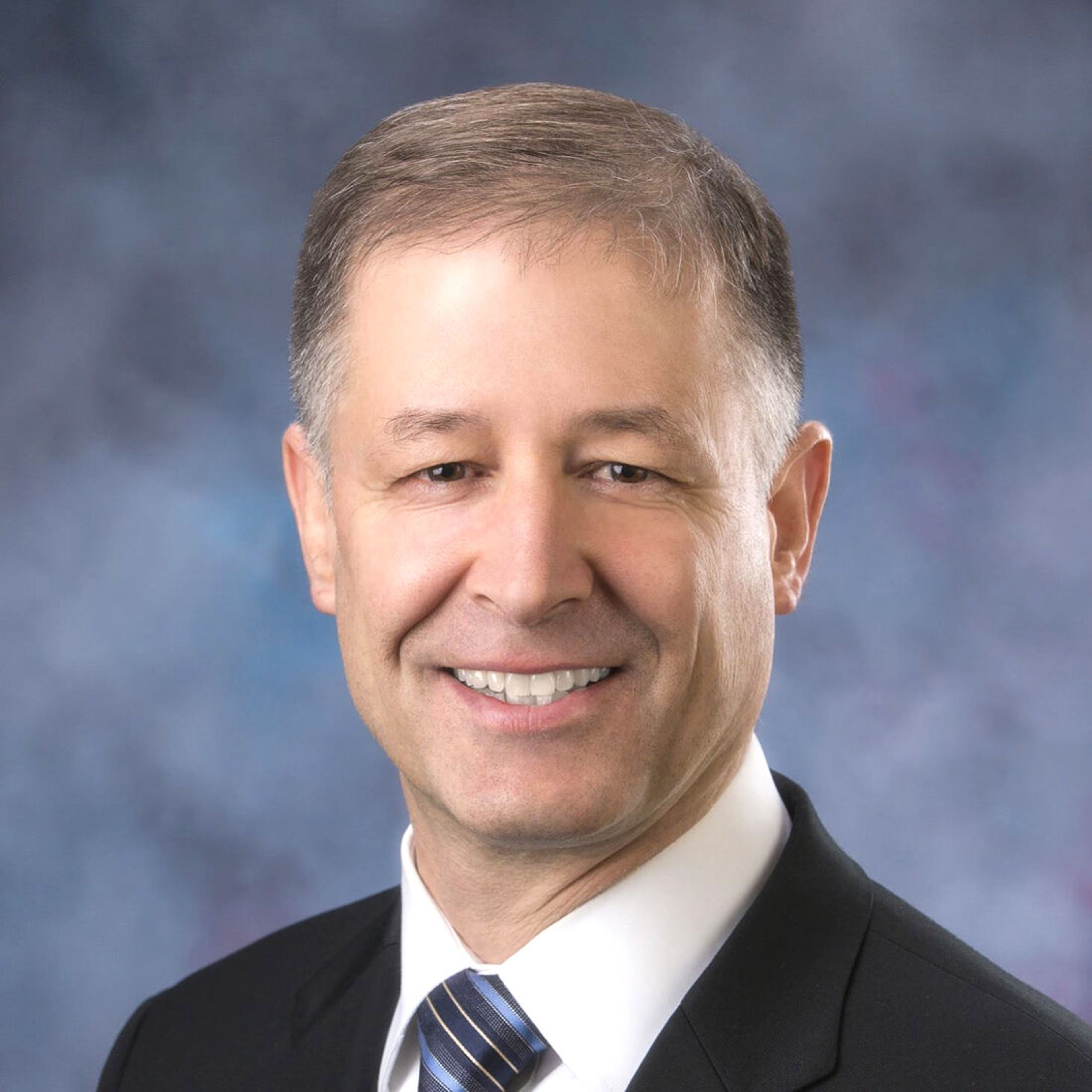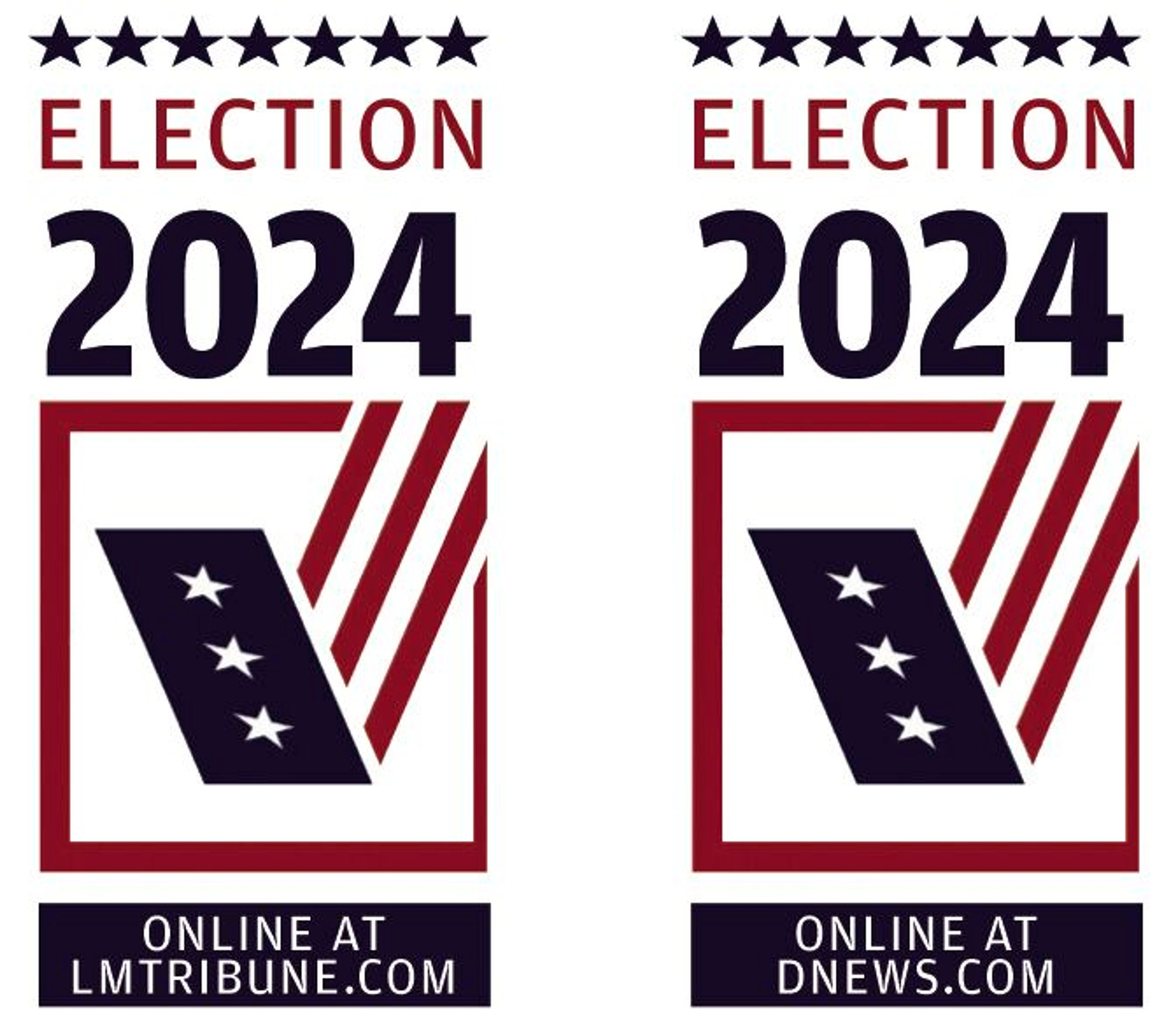Troy residents voice opposition to downtown church gatherings
Public hearing held on conditional use permit application that would allow Troy property owner to rent building out for religious purposes
TROY — Twenty-eight people submitted written statements opposing a property owner’s application to rent out a downtown Troy building for church gatherings Sundays.
During a Wednesday public hearing, 15 people spoke in opposition to the possibility of church gatherings at the former Umpqua Bank building on 424 S. Main St.
Owner Matt Meyer bought the building in November with the goal of allowing the public to rent that space for events, including religious meetings. Meyer told the Daily News on Tuesday that Christ Church was interested in using that space for this purpose on Sundays. Meyer is listed as a parish elder on the Christ Church website.
The building is in a commercial zone, so a conditional use permit is required to rent the building out for religious meetings.
The Troy City Council held the public hearing but did not make a decision on the CUP on Wednesday. Their decision will be announced at a future city council meeting.
Meyer was in attendance during the public hearing, which drew a crowd inside the Troy Lion’s Hall.
The potential for parking problems, traffic issues and lack of retail revenue downtown were among the concerns brought forth by those who opposed the CUP. Many in the crowd applauded those who spoke in opposition to Meyer’s application.
Aside from Meyer, one other person spoke in support of the CUP. There were also six written statements submitted to the city in support of Meyer’s application.
Troy resident BJ Swanson opposed the CUP and said during the public hearing that the commercial zone is meant to support public commercial retail and businesses interests that benefit the entire community.
“The business center of the community is your downtown and the former Umpqua building is the center of that community,” she said. “A church really doesn’t belong there.”
Don McLeod expressed his fears about the limited amount of retail sales taxes in Troy, and believes Meyer’s plans for the building will worsen that problem.
McLeod said he’s seen other small towns that have lost their retail sales tax revenue, which led to people “begging each other for help on the street.”
He said commercial properties in Troy are too limited to be used for religious purposes and he’s concerned the CUP will set a bad precedent for the city.
“I love this town,” he said. “I do not want to see it slip away.”
Others who spoke echoed this desire to see more retail businesses in downtown Troy.
According to Meyers’ CUP application, he anticipates approximately 80 people would attend these Sunday morning gatherings. The CUP application states that these religious meetings should not cause any problems with the street parking downtown because the streets in Troy “are practically empty on Sundays.”
But other Troy residents, including those who live near the former Umpqua Bank building, stated they are worried about this increase in traffic and cars parked in that area. Some said this problem would worsen during snowy weather.
In his response, Meyer addressed the parking concerns.
“Being in the business district and allowing use of existing parking which isn’t being used is, in fact, a benefit — it’s part and parcel of being downtown,” he said.
Meyer said he is trying to make it a viable business and believes that having a facility people can rent on a regular basis for community events is a benefit to Troy, as well.
He pointed out that Troy’s website highlights other churches in the city, which Meyer said indicates the community values these religious services.
Meyer clarified the building is owned by him, and not by Christ Church.
His CUP application can be viewed on the Troy city website.
Kuipers can be reached at akuipers@dnews.com.
